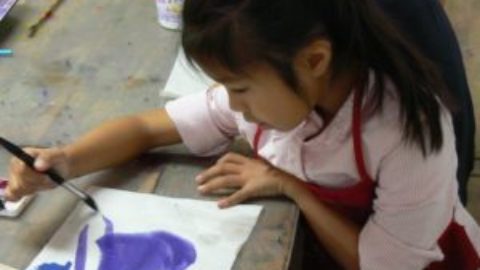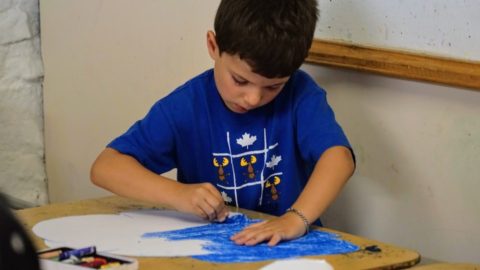Taliliya Taye, one of HCA’s newest piano instructors, has an infectious love of the arts. Receiving her formal music education in Russia and at Mohawk College, Taliliya has been surrounded by music her entire life and finds joy in sharing her passion with others. We speak to Taliliya about her background, why music education is so important, and tips for getting young students to practice at home.
Can you tell us a little bit about your musical background?
I started studying music when I was six years old. I’m from Russia, and in that part of the world, almost every child plays an instrument. I grew up surrounded by music; everyone in my family played at least one instrument – accordion, guitar, piano, trombone, etc. My instructors wanted me to pursue music, and when I was 16 or 17, I dreamed of being a singer. I loved performing in front of audiences! I enjoyed a varied artistic career – I worked in a puppet theater, wrote music radio advertising, as well as performed as a jazz and pop singer in St. Petersburg.
When I arrived in Canada around 14 years ago and I had my children, I had a hard time finding artistic opportunities for them. That made me want to share my musical knowledge as an instructor.
What’s your teaching philosophy?
I’m always so careful about how I explain things to students, and I encourage questions in my classes. When I was learning piano, all of the elements of music were taught separately – we had classes in choir, solfege, piano, and theory. My piano teacher focused on technique but never discussed HOW the composer wrote the music. I don’t think this is the best way to learn. When I teach, I ensure that each student understands how each piece of music is created. This leads to a well-rounded education.
What’s your favourite thing about teaching music?
I love seeing my students perform in recitals and festivals, as well as receiving strong Royal Conservatory of Music exams. In these circumstances, both the student and I are able to share the positive outcome of hard work and dedication. I am always proud of my students’ achievements!
More broadly though, I love to share my love of music with as many people as possibly. The arts connect us all. Everyone in this world are brothers and sisters and fathers and mothers to each other. We are one large family. Every person is important and special. I feel lucky to work in this field and to share my passions with others.
It can be difficult for parents to get children to practice music on a regular basis. Do you have any tips to encourage practice at home?
I think it’s fine in the beginning if a child just enjoys coming to class each week. Step by step, I build a relationship with my youngest students. If they enjoy class, they will eventually practice outside of class. Sometimes it’s a process. The most important tip that I can give parents is to remember to convey excitement and interest over what their child is learning. Ask your child to show you what they are working on in class each week. Tell them that it sounds cool! It’s all about positive reinforcement as opposed to treating practice as a stressful chore. Remember that although music involves work, it should remain fun too!
Why should people of all ages pursue music education?
Music makes for an interesting life. It doesn’t matter how old you are – anyone can learn to play music. I believe that music is necessary to human survival. It can change your mood and help regulate and express your emotions. If you feel sad or upset, you can go to the piano and play your favourite melody. There are also so many scientific studies that delve into the benefits of music on cognitive development. I see students enjoy improved math and test scores. Music is great exercise for the brain!
Taliliya Taye currently teaches at HCA on Tuesdays. Please call 905-528-4020 to book a free 15-minute trial lesson.









